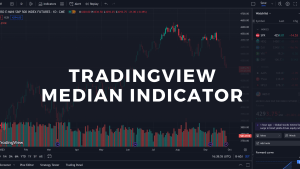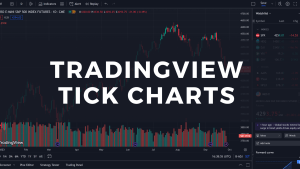This article on trading psychology tips is the opinion of Optimus Futures.
In 2020, with work moved to the home office, many folks decided to try their hand at trading for the first time.
Ironically, most entered the market right at or near the bottom.
Suddenly, a large group of relatively inexperienced traders were made to believe they were market mavens simply through buy and hold strategies.
This line of thinking lead to many trading haphazardly until eventually most if not all of the money they had made disappeared through bad trading decisions.
After suffering loses, for most people anyway, only then can a trader finally look consider trading psychology tips and discover that they may have been holding onto destructive biases with regard to how they were approaching the market.
Believe it or not, having too much early success in trading can lead to bad habits in the future. And it can create a bias that’s hard to break.
You see, trading requires skill and experience. Two attributes new traders don’t inherently have when they start.
The only way you can develop skill and experience is through repetition and time.
Proper practice and market study paired with an appropriate trading plan is what many experts suggest are keys to improving the possibility of trading success.
Many life long traders will share that emotional stress can very much impact trading. Reading books and watching videos alone can’t prepare you for the emotions that will run through your body when you’re in a trade. Academia also cannot simulate the pressure you’ll feel knowing that one bad mistake can take you out of the game and cost you hard earned money.
As an example to illustrate the above point, would you prefer to fly with someone who has flown 50 hours and never watched a video on flying before or would you prefer to fly with someone who has never flown a plane but watched 1000 hours about how to do it on YouTube? Most people would choose the person with experience because flying a plane in real life is hard to simulate. The same is generally true about trading.
There are over 250 trading days in the year if you’re an equity trader. The futures market has even more! Consistently staying on top of your game is challenging for even the most experienced traders.
Trade long enough, and you’ll experience a bad day.
There are many ways you can hurt your chances of success in trading. Today, we’ll cover five trading psychology tips, what issues they cause, and how to fix them.
1: Copying Trades
There are multiple mentors and trade alert services out there. Some are good, bad, and downright awful.
If you decide to join one of these services because you believe all you have to do is copy their trades, and you’ll be successful, you’re in for a rude awakening.
You see, even if you follow the same futures symbol and get in at the same price, it could still be a completely different trade.
For example, you and the person you’re following could have different risk tolerance levels and convictions on the trade.
Here’s an example.
Let’s say you follow someone in and buy crude oil futures at $87, which dips at $85. Since it’s not your idea, you might panic and stop out early, even though that’s not the trade the mentor you’re following has laid out.
Or what about this…the trade plan is to get out at $85, so you do, but the mentor you’re following decides to do an audible and add to their position at $85 instead of bail the position.
Working with a mentor is not a bad thing. A good one can shave time off your learning curve and help you avoid pitfalls.
But you won’t create a sustainable business if you’re simply copying trades and not trying to learn the reasoning behind the idea, the levels they are playing, and the risk-reward on the trade.
If you’re working with a mentor to learn a new strategy, then play it small and try to learn what they’re doing instead of using it as a tool to get rich quickly which is almost always impossible given the risk inherently involved in trading.
(Please be aware that many trading educators use trading rooms and trade demos, so your execution and trading results may differ in this way as well. Also be aware many trade educators and trading rooms are unregulated! They can say and do things that would not be permissible for regulated firms to do)
2: Style Drifting
There are as many trading techniques and styles as there are stars in the sky.
Everyone has different strategies.
Some work only under the right conditions, while others work for years and then quit.
It’s easy to get caught in ‘style drifting,’ jumping from strategy to strategy in an effort to find the ‘one’ that clicks.
Let’s say you typically scalp index futures.
Suddenly the grain market is running hot, and you want a piece of the action.
You have no idea what catalysts move the grain market, how they move, or the optimal times to trade it. But you jump in anyways, using a strategy you developed for crude oil.
This is an example of a trader who is style drifting.
The best traders stick to what they are good at and try to size up as they get better.
That could mean trading only a few markets. Or if they are a technical trader, it could mean trading a few setups. They don’t try to be a jack of all trades.
Warren Buffett is one of the best investors of all time. But it’s very possible he’d only be average at best if he tried his hand at day trading. The point here is that just because you are good at one thing doesn’t mean those skills will carry over to something else.
Through repetition and experience, you’ll discover what your strengths are. Once you discover your strengths, apply them to single Futures contracts.
Avoid the temptation of jumping into a hot market if you have limited experience.
If you want to learn a new strategy or market, trade it significantly smaller than what you’d do with your so called “bread-and-butter” trades.
3: Not Making Adjustments
Not all strategies work all the time.
There are moments when the markets can be highly volatile and others when they’re not. Markets can trend up; they can go sideways or trend down.
That’s why it’s critical to analyze the current market conditions and make adjustments.
As an example, if you’re a swing trader and the markets are trading choppily, look to take profits quicker on your trades.
Or, in trending markets, leave a portion of the trade on with a stop at breakeven to see if you can’t squeeze out more profit.
While it’s essential to make adjustments to the current market, it’s also critical you make adjustments based on how you’re trading.
For example, if you’re experiencing a losing streak, it’s probably best to scale down your position sizing until you build your confidence back or see a change in your trading results.
If you’re trading well and your setups are working, you might choose to try to press into your streak based on the opportunity you see.
Many traders don’t make adjustments and then wonder why they aren’t having the type of success they expect.
Reviewing your past trades is a great way to identify if you need adjustments. This is why a trading journal is critical, you must keep notes of your trading success and failure so that you can learn from your experience. Make note as well of your feelings and emotions when trading. Being aware of situations that put you into a poor mental state can be critical to understanding when and where you are most likely to lose money.
4: Trading Your PnL
The best futures traders can focus on the setup without being distracted by their profits and losses.
However, for a new trader, that’s easier said than done.
When you focus on profits and losses, you let that dictate your decision-making.
That’s why some traders will bail out on a trade once they see profits on their screen.
Others are too stubborn to get out of a losing trade because they refuse to take a loss.
One way to avoid trading your PnL is by creating a trading plan.
If you size your position based correctly and create a stop loss and profit target. Following your plan allows you to see whether your strategy is viable.
If you don’t honor your plan, then you won’t know if what you’re doing is working or not.
Utilizing software that can help you journal can keep you sharp.
5: Trading Without A Plan
At the start of this article, we discussed Covid and working from home, as being the start of a near perfect storm that brought thousands of new traders into the market.
Many of these traders looked at their success and figured they could do without a trading plan.
Sometimes traders will get overconfident after a series of wins.
They’ll believe they’ve figured out the market and start to get lazy.
Slowly, the trader gets more aggressive with bigger position sizes.
Traders who keep a trading journal may forget to update it or set it to the side entirely.
When you jump into a trade without a plan, you are more likely to trade emotionally. Emotional traders are more likely to lose money.
Trying to figure out your profit target or stop loss in the middle of the trade can cause you to deviate from strategy.
Trading without a plan is like trying to hit a target blindfolded.
Every trade you take should be outlined and answer a series of questions. For example,
- Why am I in this trade?
- What’s the catalyst or setup?
- What’s the risk vs. reward?
- What is my profit target?
- What is my stop-loss level?
Of course, a trading plan can be more detailed than that, but at the very least, you should have the essentials down.
Bottom Line
Many of these might seem more like common sense than trading psychology tips.
But that’s exactly the point.
Trading psychology is about making the right decisions over and over, letting the outcomes fall as they may.
This isn’t something that happens overnight.
Mastering the art of futures trading requires skill and experience.
The only way you can develop it is through repetition.
Once you get through the basics, you’ll discover that trading is much more mental than technical.
Working with a broker is like adding an extra teammate to your roster.
The right broker can act as your second set of eyes if you’re willing to ask and learn.
Moreover, you can lean on their experience and knowledge watching many traders come and go over the years.
That’s why Optimus Futures prides itself on cutting-edge technology paired with boutique, individualized customer service.
Find out what Optimus can do for you by clicking here.
There is a substantial risk of loss in futures trading. Past performance is not indicative of future results.
















